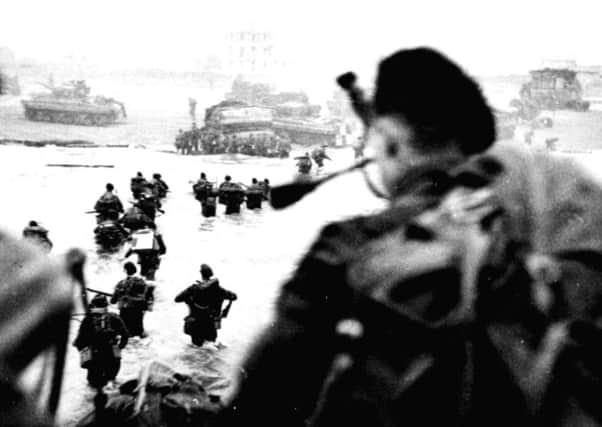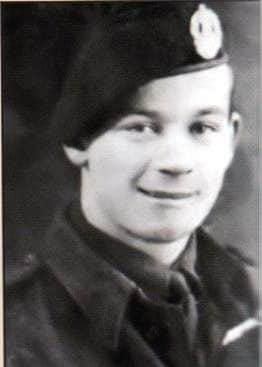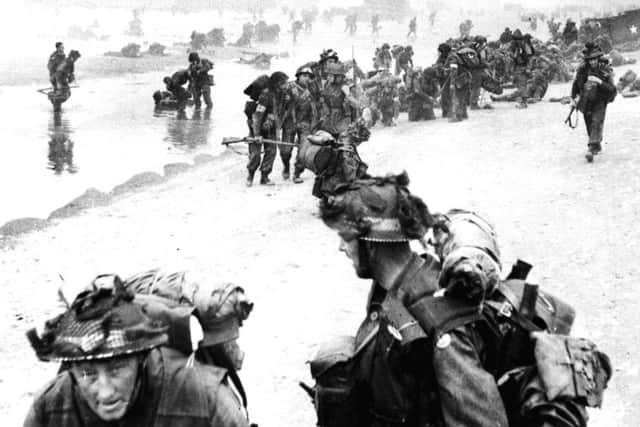June 6 1944: Piper Bill plays on Normandy beach


Said to be completely unarmed, Private Millin marched up and down the sand while playing Highland Laddie and then Road to the Isles as the largest seaborn invasion in history unfolded around him.
More than 160,000 allied troops landed on the French coastline after crossing the channel on D-Day.
Advertisement
Hide AdAdvertisement
Hide AdMillin’s legendary role was forged by his commander, Brigadier Simon Fraser, the 15th Lord Lovat, who fully approved of the tradition where Scots soldiers heard the pipes as they went into combat.


While the instrument had been restricted during battle by military top brass, Lovat’s view was the ban applied to the “English Army” and, as Scots, they could play on.
Millin, a Glaswegian who spent his very early years in Canada before returning to Scotland, became Lovat’s personal piper during training in Fort William.


In June 1944, he first struck up his drones as he left the English coast.
The piper climbed aboard his landing craft with 21 men, including Lovat, and sat as the vessel followed the course of the Hamble River out toward the Solent.
The troops were played out to sea with the Road The Road to the Isles, Millin standing proudly on the bowsprit as the music was pumped through the loudhailer.
As the thousands of transport craft gathered for the mass assault on the French beaches, Millin’s pipes could be heard above them all.


Advertisement
Hide AdAdvertisement
Hide AdMillin recalled an air of calm aboard their small craft the following morning as the assault dawned.
“Everyone was behaving normally, I mean checking their kit, putting their kit on… We all got up on deck and we stood in the freezing wind watching the shoreline.
“Then the order came to get ashore, and no one was shouting that they were afraid or shouting that they were going to kill all these Germans.
“All people wanted really was to get off.”


Millin followed Lovat, watching him crash into the waves before another was shot in the face and sunk close-by.
The piper launched himself into the water and, after emerging from the waves, Highland Laddie started to play.
He was dressed in his kilt, which was around 100 years old and worn by his father during the Great War.
Once Millin finished the tune, Lovat requested another. The former soldier earlier recalled: “Well, when I looked round - the noise and people lying about shouting and the smoke, the crump of mortars, I said to myself, ‘Well, you must be joking surely?’
Advertisement
Hide AdAdvertisement
Hide AdThe commander once asked again if he would “mind giving us a tune” with Millin suggesting Road to the Isles.
‘Now, would you want me to walk up and down, sir?’ ‘Yes. That would be nice. Yes, walk up and down.’
What transpired has since gone down in military history as an iconic moment. Millin strode up and down the beach piping rallying tunes for his friends.
The Germans were perplexed by the sight, Millin believing he thought they were mad, and did not shoot at him.
As the troops moved inland Millin found himself almost alone on the beach, but as he had not been told to stop playing he ran up and followed the men, playing them all the way to Pegasus Bridge, piping Blue Bonnets Over the Border.
On 10 June, Millins’s luck ran out when his bagpipes were hit by shrapnel.
In 2001 those same pipes, along with his family kilt, commando beret and knife, the military kit of the “mad piper”, were donated to the National War Museum of Scotland.
Advertisement
Hide AdAdvertisement
Hide AdFollowing the war Millin, played his pipes in a theatre before retraining as a mental health worker.
In 1962 a film, The Longest Day, told Millin’s incredible story. He was played by Pipe Major Laspee, the Queen Mother’s official piper.
Millin died in 2010 in Devon, where he had long made his home. A bronze statue of him now stands on Sword Beach.
